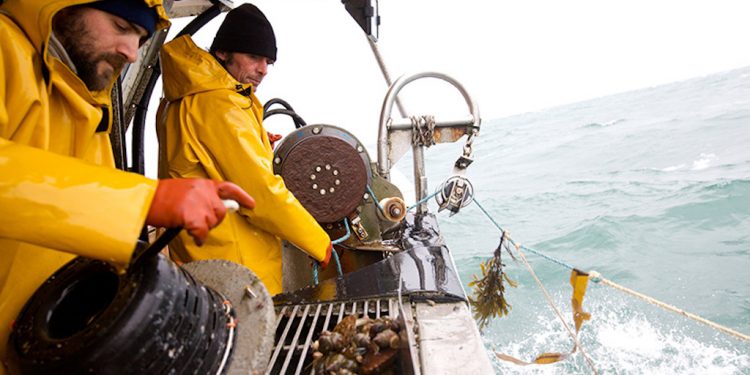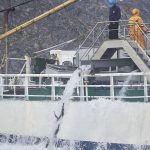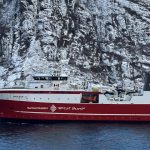The MSC sustainability certification for the Bay of Granville whelk fishery is now suspended, with climate change and rising temperatures blamed for impacts on the whelk stocks in the region.
The Regional Fisheries Committee (CRPMEM) and Normandie Fraîcheur Mer (NFM) have announced the suspension of the Bay of Granville certification for the whelk fishery, which goes back to 2017 and which was renewed only last year. They state that withdrawing from the MSC programme is regrettable, but is unavoidable as this is due to global warming and the effects of rising temperatures on whelk stocks in their waters.
‘This suspension is not a question of the sustainable management practices implemented by fishing companies operating in Granville Bay. But it highlights the need to recognise the impacts of climate change on marine resources,’ said Marc Delahaye, director of the Normandy CRPMEM.
‘We remain committed to continuing our efforts and adapting our working practices with a view to one day improving the situation and allowing us to return to the certification process.’
He commented that the situation is not attributable to fishing practices, as for twenty years the local fleet has respected increasingly strict quotas and adopted methods aimed at preserving marine resources – while there are no such measures in the neighbouring waters of Brittany or Jersey.
Catch quotas for whelk have been reduced in increments since 1997, and are now half of their original level, while a complete closure of the fishery has been in place for every month of January since 2007 – in addition to a three-month closure in the summer of 2022 due to that year’s heatwave. Sorting grid spacing was increased from 19mm to 22mm in 2009, and the number of licences has been reduced from 82 in 2007 to 63 today.
‘Alongside with climate change, inflation is affecting the purchasing power of consumers who have turned away from whelks,’ stated NFM director Arnauld Manner, commenting that with catches down by 50% since 2009, this has been offset by an increase in prices at auction – which enabled the whelk fleet to remain profitable.
He stated that the economic situation is such that the consumption of seafood in general has been affected, and the drop in auction prices for whelks is jeopardising this fleet sector.
There are 63 whelk boats fishing from Granville and the surrounding district – and they are now seeking a fleet exit plan to offset the economic consequences of this.
‘This is a system is currently only for species managed directly by Europe. The CRPM is gathering the data to allow this to be extended to our fishery,’ Marc Delahaye said.
‘The continuing rise in temperatures has a direct impact on the whelk stock. This is a situation that is totally beyond the control of fishermen, who have reached the end of what can be done in terms of management measures.’









